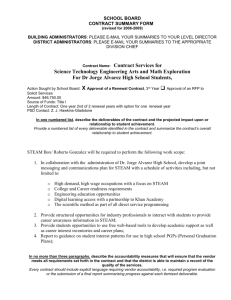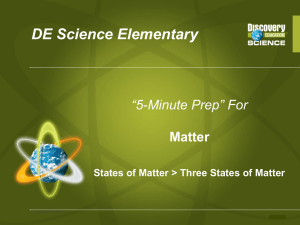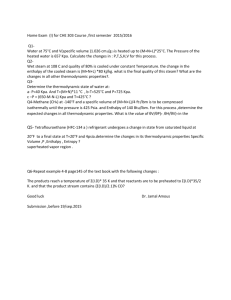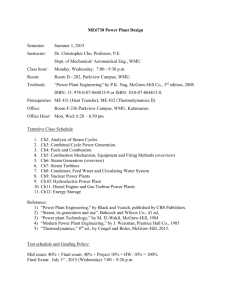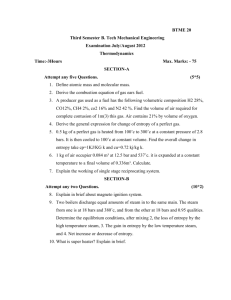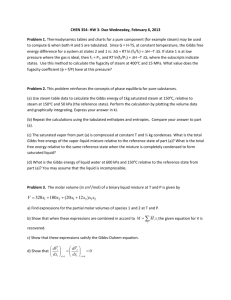Press2013 - International Association for the Properties of Water
advertisement
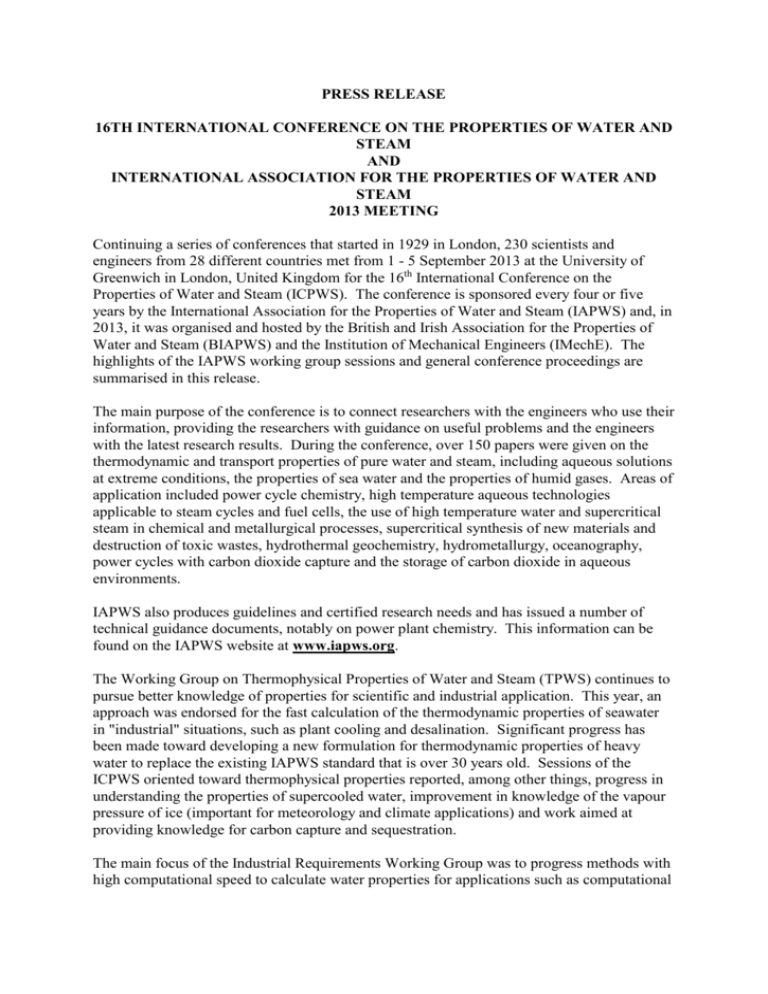
PRESS RELEASE 16TH INTERNATIONAL CONFERENCE ON THE PROPERTIES OF WATER AND STEAM AND INTERNATIONAL ASSOCIATION FOR THE PROPERTIES OF WATER AND STEAM 2013 MEETING Continuing a series of conferences that started in 1929 in London, 230 scientists and engineers from 28 different countries met from 1 - 5 September 2013 at the University of Greenwich in London, United Kingdom for the 16th International Conference on the Properties of Water and Steam (ICPWS). The conference is sponsored every four or five years by the International Association for the Properties of Water and Steam (IAPWS) and, in 2013, it was organised and hosted by the British and Irish Association for the Properties of Water and Steam (BIAPWS) and the Institution of Mechanical Engineers (IMechE). The highlights of the IAPWS working group sessions and general conference proceedings are summarised in this release. The main purpose of the conference is to connect researchers with the engineers who use their information, providing the researchers with guidance on useful problems and the engineers with the latest research results. During the conference, over 150 papers were given on the thermodynamic and transport properties of pure water and steam, including aqueous solutions at extreme conditions, the properties of sea water and the properties of humid gases. Areas of application included power cycle chemistry, high temperature aqueous technologies applicable to steam cycles and fuel cells, the use of high temperature water and supercritical steam in chemical and metallurgical processes, supercritical synthesis of new materials and destruction of toxic wastes, hydrothermal geochemistry, hydrometallurgy, oceanography, power cycles with carbon dioxide capture and the storage of carbon dioxide in aqueous environments. IAPWS also produces guidelines and certified research needs and has issued a number of technical guidance documents, notably on power plant chemistry. This information can be found on the IAPWS website at www.iapws.org. The Working Group on Thermophysical Properties of Water and Steam (TPWS) continues to pursue better knowledge of properties for scientific and industrial application. This year, an approach was endorsed for the fast calculation of the thermodynamic properties of seawater in "industrial" situations, such as plant cooling and desalination. Significant progress has been made toward developing a new formulation for thermodynamic properties of heavy water to replace the existing IAPWS standard that is over 30 years old. Sessions of the ICPWS oriented toward thermophysical properties reported, among other things, progress in understanding the properties of supercooled water, improvement in knowledge of the vapour pressure of ice (important for meteorology and climate applications) and work aimed at providing knowledge for carbon capture and sequestration. The main focus of the Industrial Requirements Working Group was to progress methods with high computational speed to calculate water properties for applications such as computational fluid dynamics and time-dependent power plant simulations that require significant data entries. An important growing collaboration between IAPWS and the International Bureau of Weights and Measures (BIPM) continued with a series of workshops being held at the conference to further explore the development of standards relevant to environmental science and industry. Coordinated by the IAPWS/SCOR/IAPSO Joint Committee on the Properties of Seawater, which links IAPWS to the ocean science organizations SCOR (Scientific Committee on Oceanic Research) and IAPSO (International Association for the Physical Sciences of the Ocean), steps were taken towards finding a ‘traceable link’ between the TEOS-10 salinity standard (which uses the IAPWS-2008 Gibbs function formulation for seawater) and the SI (international system of units). A plan was also formulated to investigate the development of a traceable definition of pH that would be relevant at the high salt concentrations found in the ocean and to agree on a standard for the definition of relative humidity in the atmosphere. The Working Group on the Physical Chemistry of Aqueous Solutions continues to focus on the fundamental thermodynamic and kinetic aspects of aqueous solutions and supercritical water. Particular areas of importance during the conference were the reactivity of gases such as hydrogen, carbon dioxide and carbon monoxide, simple and complex organics such as formic acid, and a variety of heavy metal oxides in aqueous solutions. A further area of focus was the study of transport and interfacial properties. In addition, a draft IAPWS guideline for the thermal conductivity of seawater has been prepared and is currently under review. The proceedings of the Power Cycle Chemistry Working Group involved a full technical programme that covered a wide range of research, current operational issues and future requirements at both fossil and nuclear power plants. Of particular note was continuing progress over recent years with the increasing worldwide use of the IAPWS power plant chemistry technical guidance documents. In 2013, the release of a new guidance document on Steam Purity for Turbine Operation was approved. It was also expected that a new document on Corrosion Product Sampling and Analysis will be approved by the end of this year. A need for further work on corrosion product sampling in cycling plants was identified. IAPWS produces Certified Research Needs (ICRN) as guidance for funding agencies and as an aid to people doing research in defining important research. While no new ICRNs were issued this year, eight remain active in a variety of areas related to the properties of water and steam, the properties of sea water and the chemistry of power plants. The IAPWS Gibbs award was presented to Professor Digby D. Macdonald from the University of California at Berkeley in the USA. The IAPWS Gibbs Award is given at the ICPWS for a distinguished career body of work of interest to IAPWS. The IAPWS Helmholtz Award was presented to Dr Hank Ashbaugh from Tulane University, USA. The IAPWS Helmholtz award is given annually to developing or early career scientists and engineers who are working in a field of interest to IAPWS. It includes an opportunity to attend the IAPWS meeting to present the Helmholtz Award lecture. Dr Rainer Feistel from the Leibniz Institute for Baltic Sea Research in Warnemünde, Germany was nominated to become an IAPWS Honorary Fellow in recognition of his many years of outstanding contribution to IAPWS. In addition, there were five awards presented by BIAPWS for the best student papers at the ICPWS in memory of their former colleague Dr Geoff Bignold. IAPWS welcomes scientists and engineers with interest in the thermophysical properties of water, steam, and aqueous systems and in the application of such information to industrial uses. The next IAPWS meeting will be in Moscow, Russia from 23 - 27 June 2014. Further information on meetings can be found at the IAPWS website (www.iapws.org) as it becomes available. People interested in IAPWS documents and activities should contact the chairman of their IAPWS National Committee (see website) or the IAPWS Executive Secretary, Dr. R. Barry Dooley, bdooley@structint.com. People do not need to be citizens or residents of member countries to participate. Professor Digby D. Macdonald from the University of California-Berkeley in the USA receives the IAPWS Gibbs award from the President of IAPWS, Tamara Petrova, Moscow Power Engineering Institute, Russia. Dr Hank Ashbaugh from Tulane University, USA, presents the IAPWS Helmholtz Award lecture furthering IAPWS interests in molecular modeling of thermophysical properties of water and aqueous systems. David Moed from Delft University of Technology in the Netherlands receives one of BIAPWS Awards from Stella Bignold.

